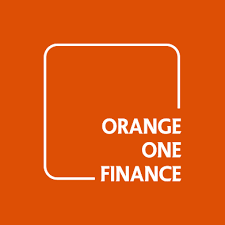Technology is the practical application of tested scientific knowledge to create solutions, improved approach/methods to enhance expected outcomes, increase efficiency, hasten or speed up processes to better human wellbeing and industrial results.
Nigeria with an estimated population of 200+ Million people parades some of the best Innovative minds, Industry Champions and Technology Leaders. In 2020, Nigeria had 99.05 million internet users. This figure is projected to grow to 131.7 million internet users in 2023. The internet penetration amounted to 46.6 percent of the population in 2020 and is set to reach 65.2 percent in 2025. In the most recently measured period, there were almost 85 million mobile internet users in Nigeria, and mobile phone internet usage is particularly popular. Nigeria is considered a mobile-first market where infrastructure and online usage development skipped wide-ranging desktop PC adoption and went straight to mobile internet usage via inexpensive smartphones instead. With almost three quarters of Nigerian web traffic being generated via smartphones, Nigeria ranks at the top of the list of African countries based on the share of traffic via mobile. Other African markets with a similar share of mobile online traffic are the Sudan and Ghana
According to the Freedom House Index 2019, Nigeria was ranked fourth in Sub-Saharan Africa and 22nd out of the 65 global markets that were measured for internet freedom in 2019. Nigeria has very strong libel laws and subsequently, Nigerian internet users often do not feel free to fully express themselves online (Source Statista.com).
The outcome of these tech-powered commitment on the part of policy makers, has helped the nation leapfrog, re-shape and domesticate the institutional framework enabling her re-tool SME architecture of the nation’s business ecosystem leading to the emergence of indigenous Startups like (Flutterwave, Paystack, Paga, SecureID, Kuda, Pass, Interswitch, Verve, YouVerify). These technology solution did not only ease the previous challenges faced by Government, Government Agencies and Startups in payment and other digital complexities, it brought with it competitive and comparative solutions that has been mind-blowing thus far. The advantages of these technologies improved the ease of doing business, prioritizing value addition, enhancing supply chains and operations; and also scattering impact to stimulate thinking for more Data Driven technology solutions, which in turn is enabling the emergence of Startups offering cutting edge solutions to developers and consumers.
Before 2000 for instance, business Registrations, Government Levies and duty Payments were made by hand at Government Offices and Agencies responsible for their collection with little accountability, whereas today following advancement in FinTech and evolution of Online Payment Gateways like Flutterwave, Paystack, Remita etc. the story is different as Taxes: Value Added Tax- VAT, Personal Income Tax like Pay as You Earn-PAYE, Duty payments like Custom and Excise Duty, etc. are paid online and collected electronically direct to relevant Government Accounts. This has reduced leakages and increased the verifiable amounts collected by the Government from Taxes and Levies within the system. The results can be seen in the year on year total collections declared by Government Agencies. For instance FG generates NGN 424.71bn VAT in Q3 2020, while NGN 275.12bn was generated in Q3 2019; 29.80 percent increase Quarter-on-Quarter and 54.37 per cent increase Year- on- Year (source Nigeria Bureau of Statistics) Other Agencies like Nigeria Customs Service-NC have also recorded meaningful numbers (1.20 trillion generated in 2018, 1.341 trillion in 2019 exceeding target of 404 billion set), Federal Inland Revenue Service-FIRS (5.3 trillion in 2018- the highest before this time, 5.26 trillion in 2019), Corporate Affairs Commission-CAC (85,635 new entities registered in 2018, 89,917 new entities in 2019).
These technology enhancements has helped Nigeria see the need for a harmonized comprehensive data of her citizens/population to be able to accurately determine her Infrastructure deficit calculation and permutation. This followed directive by The Federal Government of Nigeria-FGN for all citizens to obtain a National Identity Number-NIN as well as bank account holders to compulsorily register and obtain Bank Verification Number-BVN that ties all accounts of account holders in all banks where they operate accounts to one BVN number, in February 2003 and February 2014 respectively. These technology enabled exercise has no doubt drastically exposed fraud within the Nigerian system as the number of traceable cases increased by over 30 percent with good number of arrests carried out by Nigeria Anti-Graft Agency- Economic and Financial Crimes Commission-EFCC which secured 312 convictions in 2018, 406 in 2019 and total of 1900 convictions between 2015-2019 plus more than NGN 794 billion looted funds recovered from top Government Officers, Security Chiefs, Civil Servants, Former Governors, Oil subsidy merchants and scores of big wigs in the private sector.
The FGN has taken steps further to include National Identity Number-NIN and Bank Verification Number-BVN as compulsory requirements for bank accounts opening, business registration, tax clearance certificate issuing, vehicle and other license registration, electronic duty/levy payments etc. to remove the access for multiple identity to beat the system which was possible ab-intio, but extremely difficult with the end to end adoption of technology within the government process architecture. Recently in August 1 2020 The Central Bank of Nigeria-CBN issued a Global Standing Instruction- GSI directive that allows Bank B to debit the account of her customer’s in Bank A to set off defaulting loans owed by same customer in Bank B where there exists a record of defaulting/bad loan. The aim of CBN is to grant more SME growth support funds or loans while keeping sight to reduce the number of non-performing or bad loans as well as number of defaulters who successfully obtain CBN SME Support loans. The aim is to create a healthy loan repayment culture within the SME space in Nigerian. Yet again these were made possible due to BVN and NIN which are technology enabled initiatives.
HOW THE BUSINESS ECOSYSTEM RE-TOOL WILL HAPPEN
With online transactions in Nigeria reaching $116 billion in Q3 2020 (https://techpoint.africa/2020/11/05/instant-payment-nigeria-q3-2020/) from approx. $13 billion in Q3 2019 clearly showing deeper penetration in structure, general outlook as to how much technology can enable businesses and power society.
Firstly will be FORCED ADOPTION by key decision makers in Government- Federal Executive Council-FEC, Members of Parliament, Assembly Representatives, Heads of Government and Government Agencies, Heads of Micro, Small and Medium Enterprises- MSMEs, Organized Private Sector and all critical stakeholders within the economy who will have no CHOICE but to adopt technology to increase process efficiency owing to the undeniably disruptive outlook that will follow by say 2023; considering the successive speed at which the human mind is thinking and applying technology to create leading solutions that enhance business and societal wellbeing.
Next will be UNAVOIDABLE INTEGRATION of technology to process innovation to create more acceptable ways of doing things by these key economic players- Politicians, Government Agencies, Micro, Small and Medium Enterprises- MSMEs, Organized Private Sector who are major decision makers and influencers. The valid measurable proofs in outcomes that are relatable and too visible to overlook. Of course going by the unmatched efficiency in process, methods, systems and outcomes that will be very evident in the results and outlook of early adopters to technology which will show undeniable proofs and act as eye openers to the obvious truth to stay innovative or risk extinction. Quick scale by Early Adaptors to technology, trends and her support systems will be the order of the day which in turn will create a new order that will result from measurable scattered impact- a core technology feature/characteristic that defines all technologically advanced societies like Germany, Netherlands, Sweden, Norway, UK, USA etc.
With the foregoing, SYSTEM AND PROCESS INNOVATION will be the case within all systems and key Offices of Government. This will render archaic traditional business systems, methods and practices obsolete (For instance keeping physical file records rather than cloud based records, struggle by non-formal business sector to formalize their businesses and adapt the trend of onboarding their business presence online) and non-conformable to the new order/ways that is powered by technology; known and seen to be fast, seamless and more efficient- The results will be too clear to overlook or undermined by Influential or powerful persons in Administrative and key decision makers within the circles of Government.
These changes will deepen conversations within the Nigerian business space for a more technologically driven business ecosystem by key sector actors: Organized Private Sector, Business Industry Chiefs, MSME Clusters etc. based on the shift in narrative and results that will show in process outcomes of adopters of these new technological tools, software and innovations to support their business processes. Successive obsolation of methods by these new technological solutions which will emanate from continuous research, creative thinking, taking calculated RISKS and bold steps by Founders within the Nigerian Business environment.
The foregoing will lead to the most interesting phase which is- CHANGE IN BUSINESS/SME POLICY FRAMEWORK by the Government and all relevant Agencies of Government where policies are formulated and implemented. The essence will be to domesticate and sustain the outcomes witnessed by enshrining them as policy statements and documents for use as National Development Templates to be replicated or duplicated by subsequent Government Administrations for track able progress. The effect of leading technology driven business solutions and startups will naturally cause an adoption model within Government Quarters. At which time the Business Ecosystem would have become Matured and more developed having witnessed unavoidable trajectory shifts, change curves and improvement milestones; that the Government of Nigeria will have no option than to align to frame and implement support policies to sustain the new Status Quo and encourage Ease of Doing Business seeing that they themselves- Government and her Policy Agencies alike: Central Bank of Nigeria-CBN, Small and Medium Enterprises Development Agency- SMEDAN can no longer be shallow in delivery.
The World Bank (WB) recently released its EASE OF DOING BUSINESS 2020 Report. Nigeria’s ranking jumped from 146 to 131; representing its second highest annual progress of 11.45% in a Decade. The annual report looked at ten (10) parameters. Dealing with Construction permits (14.6%) and trading across borders (6.1%) had the best growth. Nigeria improved its rank in 5 Parameters while moving closer to global best practices in 2 Parameters. WB also recognized Nigeria amongst the ten most improved economies, thanks to 6 distinct reforms from the Presidential Enabling Business Environment Council (PEBEC) which showed a significant business regulations Distance to Frontier (DFT) score which identified 2018 as a year of new cycle of better policies for businesses as the DTF score rose from 52.33 to 56.9 by 2020. Certainly technology adoption was a major contributory factor.
Key Government Revenue Generation Agencies like Central Bank of Nigeria (CBN), Nigeria Ports Authority (NPA), Nigeria Immigration Service (NIS), Federal Inland Revenue Services (FIRS), Corporate Affairs Commission (CAC), Department of Petroleum Resources (DPR), National Agency for Food and Drug Administration and Control (NAFDAC) etc., cannot deny the impact of technology as business and operations enabler as each of these Agencies have witnessed firsthand transformation in their processes and year on year results/target numbers comparatively- doing things traditionally Versus using Technology. A good example is FIRS Tax Statistics/Reports- ANNUAL SUMMARY OF COLLECTION from year 2000 – 2020 showing year on year increase in collections by 25-45% consistently with significant improvements from the previous year.
The positive outcomes in systems, processes and results is relatable and undeniable. As such the way forward will be to support these Enterprising Innovative Thinkers with the right policies to stimulate more and more break through using Technology to enhance livelihood. This is the reason for interesting news headlines like Business formalization Support of the MSME Survival Fund- FREE 250,000 FGN BUSINESS NAMES REGISTRATION FOR SMEs https://www.cac.gov.ng/free-250000-fg-cac-business-names-registration-for-msmes/ announced in October 2020.
Overall, the depth of impact fostered by Technology will evidently expose now or in the near future; the need for creation of a visionary business policy template of 5-10 years which will act as a BUSINESS ENABLEMENT/INDUSTRIALIZATION ROAD MAP to power trade and industrial development infrastructure components that drives, as well as encourage Foreign Direct Investment-FDI through harnessing the linkages and competitive advantages in new technology solutions to boost and Re Tool the mechanism for Nigeria’s Business Ecosystem – which is a major prerequisite and an enabler for the expected confidence by Foreign Investors to invest in Nigeria seeing the level of business maturity Nigeria’s Ecosystem would have garnered as evidence to the impact of Technology. This will be clearly visible in business process improvement, available reliable and relevant National Data, sustained business policy regulatory changes and overall business growth Index. Let me wrap my message with quotes by Enterprise Business Leaders in Nigeria and Africa:
“Africapitalism is about the intersection of economic prosperity and social wealth, the intersection of making profit and doing good, and not waiting to finish one before you do the other.”
“There is a better way to invest in Africa for a sustainable future that creates value for all.”
– Tony O. Elumelu, Economist, entrepreneur, philanthropist
“Whether you’re a farmer, builder or engineer, the opportunities are equal: just add a little innovation.”
“The opportunities is in the problem. The moment I see a problem, I immediately begin to think about the opportunities that can be created by trying to solve it.”
– Strive Masiyiwa, Zimbabwean billionaire businessman and philanthropist
Victor Uche Obioma is the Vice Chairman, VICFAUS INTEGRATED SOLUTIONS LIMITED (Division of VIEWS GROUP Co.), He is an International Partner for Nigeria; World Business Angels Investment Forum-WBAF and a Member; Global Start Ups Committee











Infrastructure development and growth is not where it should be nor given the undiluted focus. I worry we may not achieve the technology growth projections